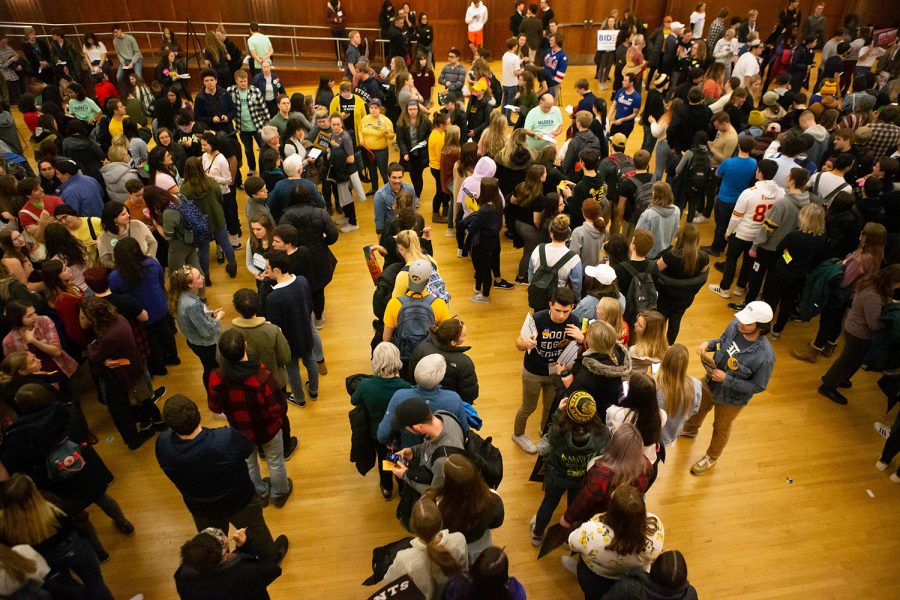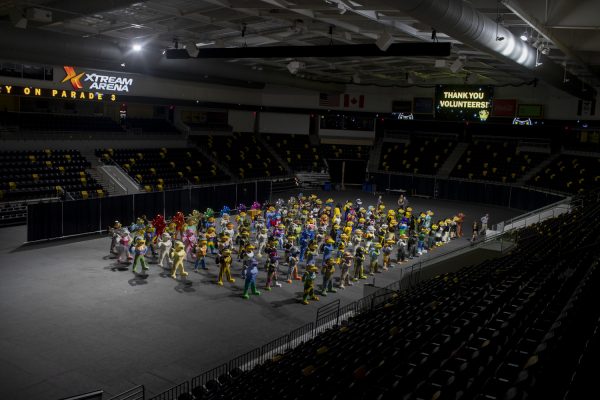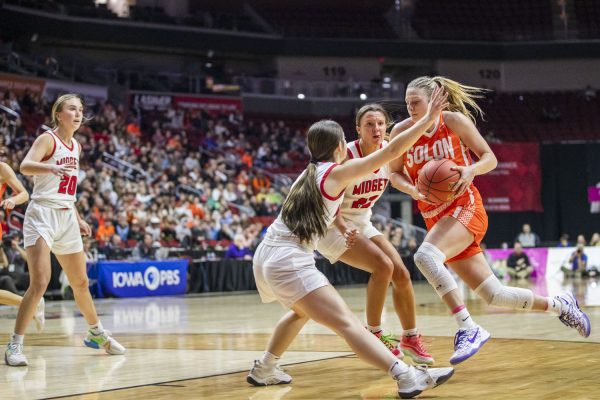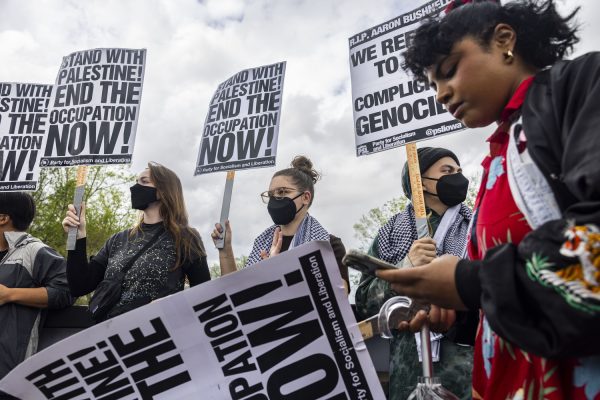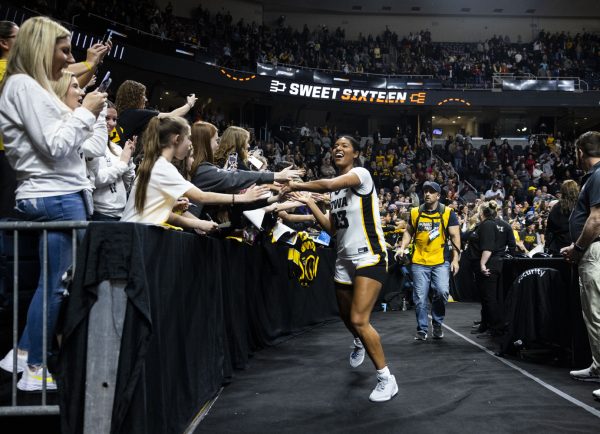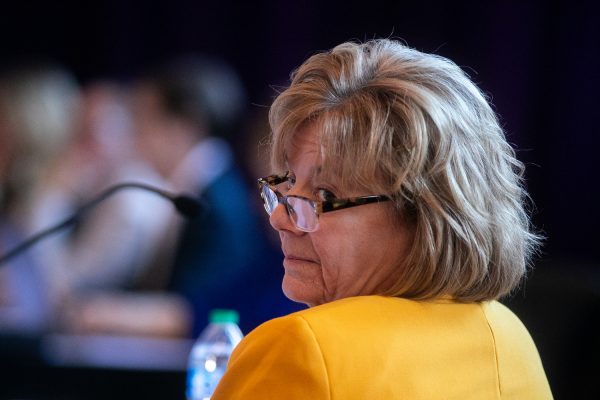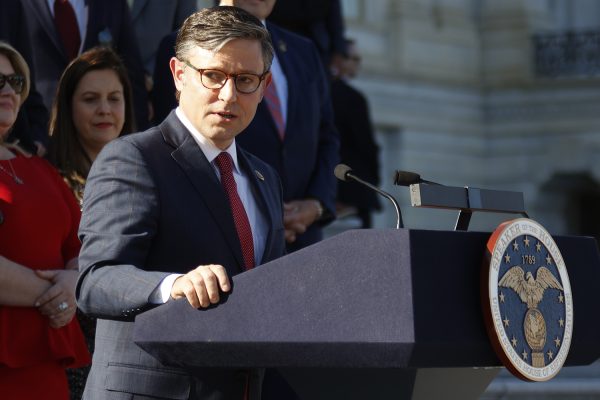Iowa caucuses results show Pete Buttigieg, Bernie Sanders in virtual tie
University of Iowa students form lines during the caucus at the Iowa Memorial Union on Feb. 3.
February 7, 2020
The 2020 Iowa caucuses saga moseys into day four. The Iowa Democratic Party released results from very nearly every precinct, although some inconsistencies throw the integrity of the results — which show Pete Buttigieg and Bernie Sanders in a virtual tie — into question.
The former South Bend, Indiana mayor leads Sanders in state delegate equivalents at 564 to Sanders’ 562, but the independent senator from Vermont leads in total number of people in his corner on first alignment and after the final alignment, when people in nonviable camps either left or joined a new camp.
The Associated Press reported it was unable to declare a winner based on the percentage of state delegate equivalents, an electoral-college style system that awards delegates based on support for candidates, and favors candidates who do well across geographical areas of the state.
The results come after a delay in caucus results and a New York Times investigation that found discrepancies between new counts of first alignment to final alignment to state delegate equivalent. However, the errors didn’t favor one candidate or another.
The errors and discrepancies reported lead to challenges to the results, and a call from the Democratic National Committee chairman, Tom Perez, for Iowa to double check its tallies. The Iowa Democratic Party issued a statement that it would be prepared to conduct a recanvass if a candidate requested it.
The razor-thin margin didn’t prevent candidates from claiming victories out of the Iowa caucuses. While in New Hampshire Thursday while there were 97 percent of precincts reporting, Sanders called the results a “strong victory” for his campaign.
Sen. Elizabeth Warren, D-Mass.; former Vice President Joe Biden; and Sen. Amy Klobuchar, D-Minn., trailed the Buttigieg and Sanders by more than 8 percentage points, garnering 18 percent, 15.8 percent, and 12.3 percent of state delegate equivalents, respectively.
Of the top five candidates, Biden and Sen. Amy Klobuchar, D-Minn., were the only two candidates to reach the double digits in percentage of state delegate equivalents, but not earn any national delegates so far.
Grinnell political science Professor Barbara Trish said that caucus results represent a small percentage of Democrats in Iowa, and that typically the most enthusiastic Democrats come out to caucus.
She said the partial results could suggest that the Buttigieg and Sanders campaigns did a better job organizing and getting people to mobilize on caucus night.
“I think that sometimes enthusiasm is enough to get you to the caucus,” Trish said.
Biden said in a Feb. 1 interview with The Daily Iowan that since he jumped into the race, candidates like Sanders and Warren were able to kick-start a larger ground game. Sanders had about 250 paid staffers in Iowa, and Warren and Buttigieg each had about 150 paid staffers.
Johnson County remained the only county where Warren won, albeit narrowly, the most state delegate equivalents, with 53.06 percent to Sanders’ 52.25 percent.
Biden had about 75 paid staffers, but had 27 Iowa field offices — more than Sanders and Warren and less than Buttigieg.
“Bernie has been out there a long, long time running, and he’s, to his credit, build up a base,” Biden said to the DI on Feb. 1 in North Liberty. “Elizabeth has as well.”
Electability is an important factor for many Democrats who just want to nominate a candidate who can unseat Trump. Biden campaigned largely on his electability and political experience, touting himself as the Democratic hopeful who can beat Trump and tackle foreign policy.
Trish said that even though the caucus results only represent a small percentage of Democrats in Iowa, Buttigieg leading the ticket could signal electability to voters in other states, and that he was able to “withstand a grueling campaign” in Iowa.
“I do think that others will … see that [Buttigieg and Sanders] might be a little more electable than previously thought,” Trish said. “I mean it doesn’t make sense to think that because, you know, remembering that this is such a unique and small set of activists who are expressing their positions.”
Backing from major Iowa Democrats did not translate into support at the caucuses. Biden was endorsed by Iowa Congresswomen Abby Finkenaur and Cindy Axne, two former Iowa governors, and Iowa Attorney General Tom Miller. Seven-term Iowa Congressman Dave Loebsack endorsed Pete Buttigieg.



